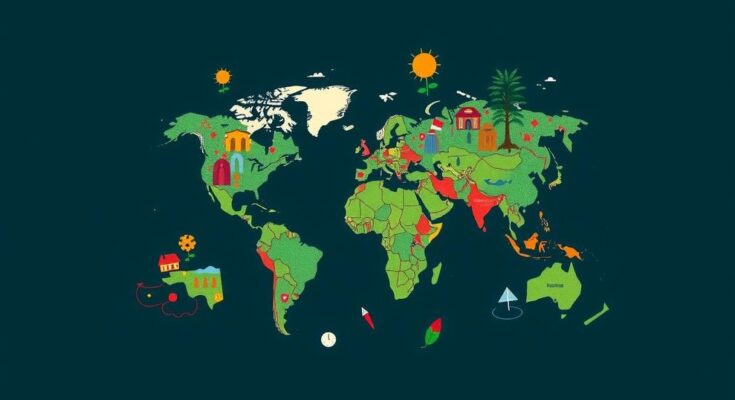This article emphasizes the need to prioritize climate justice at COP29, focusing on the disproportionate impact of climate change on less developed countries and the historical responsibility of wealthier nations. It outlines the importance of equitable resource distribution and financial assistance for developing nations while stressing the urgency of collective action to address climate inequalities.
At the forefront of the climate discourse leading into COP29 must be the stark reality of climate inequality. Those communities and nations most affected by climate change are predominantly those that have historically contributed the least to its causes, while possessing the least resources to mitigate its impacts. The legacy of exploitation by wealthier nations has left many in the Global South grappling with staggering realities such as extreme weather events and lack of equitable resources for climate adaptation. Currently, the wealthiest 10 percent of the global population is responsible for nearly half of all greenhouse gas emissions, while poorer countries, representing half of the world’s populace, contribute merely 12 percent. This imbalance exemplifies a foundational issue in climate justice discussions, further exacerbated by political shifts such as the election of climate skeptic Donald Trump and the self-serving actions of some nations at international conferences. Despite progress made in previous COP meetings towards international climate policy, the ability to effectively address climate justice continues to be a contentious and insufficiently addressed topic. Through my involvement with a UN-led research initiative, I aim to identify effective strategies to confront climate injustice and have brought these findings to Azerbaijan for COP29. This event represents a crucial opportunity to embed climate justice into the global climate agenda. Achieving this will require a commitment to equitable resource distribution and necessitate extending beyond existing frameworks to incorporate development financing and global governance reforms. Acknowledge that many developing nations are just beginning their industrialization; they lack viable alternatives to fossil fuel dependence that wealthier nations previously overcame. It is imperative to recognize that while every state has a part in addressing climate emergencies, they do not share equal historical or financial responsibility for the damage caused. Integrating climate justice into all spheres of the global political economy must become a priority, as the existing frameworks alone are inadequate to address the depth of climate injustice prevalent today. Moreover, assistance in the form of climate finance and technology transfer will be critical to support developing nations as they strive to build a sustainable future. Lastly, it is crucial for higher-income countries to view investments in climate justice not merely as a charitable act, but as a means of ensuring the long-term stability and prosperity of the entire planet. The repercussions of neglecting climate-induced migration and hardship will inevitably return to affect wealthier nations, highlighting the interconnected nature of our global society. As the discussions surrounding finance at COP29 advance, the emphasis must remain on fostering equitable strategies that prioritize climate justice alongside practical and scientific approaches to dealing with climate change.
The topic of climate inequality centers on the profound disparities between wealthy and developing nations regarding contributions to climate change and their abilities to cope with its effects. The wealthiest nations have historically exploited environmental resources for economic gain, thereby worsening the conditions faced by poorer countries. Consequently, those in the Global South, who contributed minimally to greenhouse gas emissions, face the brunt of negative climate impacts like severe weather and resource scarcity.
In summary, COP29 represents a pivotal opportunity to prioritize climate justice by addressing the inequitable burdens borne by developing countries. Moving forward, it is essential to recognize the shared but differentiated responsibilities of various nations, and to ensure that climate action is inclusive and equitable. By doing so, the international community can create a framework that not only addresses immediate climate challenges but also promotes long-term sustainability and justice for all.
Original Source: theconversation.com




